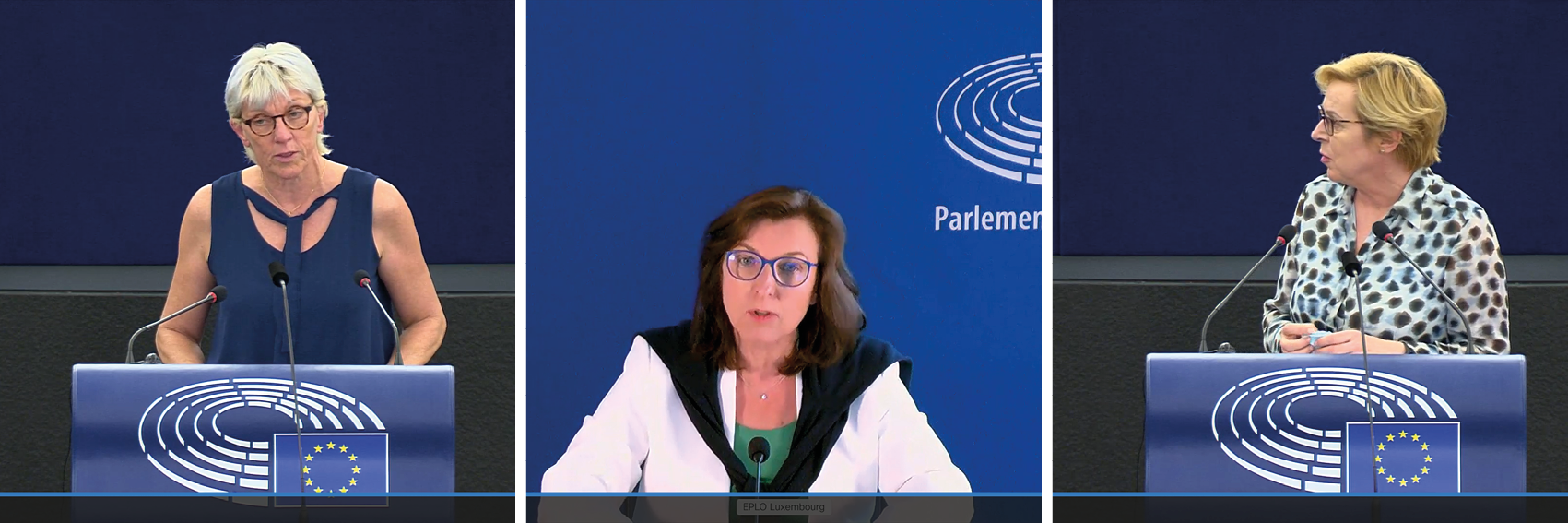More needs to be done to bring animal tests to an end across Europe, say MEPs
Parliamentarians tell Commission we need increased collaboration and an action plan with milestones to end animal experiments

Today MEPs led the call for pro-active change for animals in Europe’s laboratories, requesting the setting up of replacement targets to drive progress away from animal testing and more investment in the development and uptake of effective non-animal methods.
At today’s European Parliament plenary session in Brussels, cross party Members of the European Parliament told the Commission that a coordinated action plan is needed to enable Europe to transition to more humane and human-relevant science and asked them to urgently set up a taskforce alongside member states and stakeholders to develop a strategy to phase-out the use of animals in EU laboratories.
While Commissioner Adina Vălean reinforced the Commission’s commitment to Directive 2010/63/EU which protects animals used in research, we join MEPs in seeking a more ambitious and focused replacement plan to bring to an end the ineffective and outdated use of animals. Despite three quarters of EU adults agreeing we need a plan to get animals out of European laboratories, the number of animals used for experiments in Europe has only fallen by an annual average of 1% over the past 10 years since Directive 2010/63/EU has been in place.
Speaking in the debate, Slovak MEP Michal Wiezik (EPP) said: “There has been investment in alternatives yes, but this is still dwarfed by the investment in animal studies. Europe faces major challenges in terms of infections and diseases. Non animal methods offer immense opportunities. The Commission needs to be more coordinated and set concrete goals so that we can make non-animal methods the new normal.”
Luxembourgish MEP Tilly Metz (Greens/EFA), said: “The Directive does not provide a clear strategy for transition to innovations without use of animals. As a result, nearly 10 million animals suffer in EU laboratories every year. Animal testing contributes little in understanding human diseases, with over 90% of new drugs failing in human trials. After 10 years of no progress we need to do more and set fixed reduction targets. This should be a priority area for the Commission.”
Dutch MEP Anja Hazekamp (European United Left–Nordic Green Left), said: “Footage from the recent investigations at LPT and Vivotecnia show how animals are grossly mistreated in Europe’s laboratories. The Directive is clear, all animal tests must be replaced by non-animal alternative methods. Yet we have seen little reduction. The Commission must do more to promote non-animal alternatives, It is in the interests of both animals and humans to do so.”
Italian MEP Eleonora Evi (Greens/EFA), said: “When the EU sets goals it normally sets out targets and a strategy to achieve it, but this is not the case with Directive 2010/63. Over 10 million animals are still used every year in Europe. Non-animal methods have been proved to be effective, yet receive very little funding. We need clear action plan so we can finally move forward towards our goal of animal free science.”
Hungarian MEP Katalin Cseh (Renew), said: "Animal tests are slow, inefficient and cause immense suffering. This has no place in 21st century science. The European Union is doing better than the rest of the world, but even here, progress is too slow. We need a credible plan ‒ a plan with measures, targets and a binding, ambitious timeline. We need to promote and fund cruelty-free alternatives. This is what we are asking from the European Commission."
